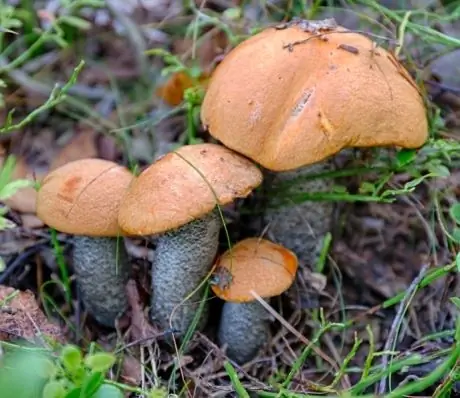- Author Rachel Wainwright wainwright@abchealthonline.com.
- Public 2023-12-15 07:39.
- Last modified 2025-11-02 20:14.
Artichoke
The artichoke is a perennial herb cultivated in warm countries as a vegetable. Unopened flower baskets and leaves that taste like walnuts are usually used for food. Due to its beneficial properties, artichokes have long been used in the diet as a dietary and medicinal product.
The ratio of BJU in the product

Source: depositphotos.com How to burn 47 kcal?
| Walking | 12 minutes |
| Jogging | 5 minutes. |
| Swimming | 4 minutes |
| A bike | 7 minutes |
| Aerobics | 9 minutes |
| Household chores | 16 minutes |
Useful properties of artichoke
Why are artichokes good for you? They contain up to 15% carbohydrates, iron and calcium salts, and quite rare organic acids - quinic, caffeic, glycolic, glyceric and others. Also, the chemical composition includes various vitamins - C, B1, B2, B3, R. Due to the balanced set of nutrients, artichokes can be used as a diabetic product to lower blood sugar levels.
Take a closer look at how artichokes are good for you. They contain the phenolic compound cynarin, which, in combination with other phenolic acids, makes it possible to use this plant as a choleretic and hepatoprotective agent. Thanks to these properties, a medicine is released from the artichoke, which promotes the elimination of urea and heavy metal salts from the body. As a phytopreparation, it can be used for both children and the elderly. As an additional therapy, artichoke medicine is indicated for biliary dyskinesia, chronic hepatitis, cholecystitis, chronic renal failure and urolithiasis.
Artichoke can be used to reduce blood cholesterol levels and normalize metabolic processes in the body. It is also useful for cleansing the body of toxins in chronic intoxication with various substances - nitro compounds, heavy metal salts and alkaloids. These properties of the artichoke have made it possible to use it for a long time as an effective antidote.
Application
To improve the regeneration of liver cells, as well as to stimulate the formation and outflow of bile, you can use a decoction of artichoke inflorescences. To prepare it, 40 g of inflorescences should be poured with a liter of boiling water and insisted for an hour. Drink the broth before meals three times a day in a glass. The broth is useful for joint diseases and for gift, due to the anti-inflammatory and analgesic properties of artichokes, as well as their ability to remove uric acid from the body. In addition, it can be drunk for migraines and to improve blood formation. In addition to inflorescences, the leaves and petioles of the plant can be used to prepare decoctions.
With regular use of artichokes, digestion is normalized, appetite and intestinal motility improves, which is especially important with frequent constipation.
For the treatment of impotence, it is recommended to drink fresh artichoke juice twice a day, 1/4 cup. In combination with honey, the juice can be used to rinse the mouth for stomatitis and thrush in children.
Due to its ability to stimulate hair growth, artichoke has long been used to strengthen hair follicles in cases of progressive baldness. For this, fresh juice is rubbed into the hair roots and washed off after 2 hours.

Artichokes are widely used in cooking. Small flowers are great for appetizers and salads, and go well with rice dishes. It is very useful to eat artichokes, cooked in any form, with increased acidity of gastric juice, since they have a strong alkaline effect due to potassium and sodium salts. To better keep the artichoke fresh, the inflorescences are dipped briefly in water with lemon juice or vinegar.
Contraindications to the use of Artichokes
Artichokes should be used with caution in your diet for hypoacid gastritis and hypertension.
In diseases of the liver, biliary tract and kidneys in the acute phase, eating artichokes is contraindicated.
YouTube video related to the article:
Found a mistake in the text? Select it and press Ctrl + Enter.






